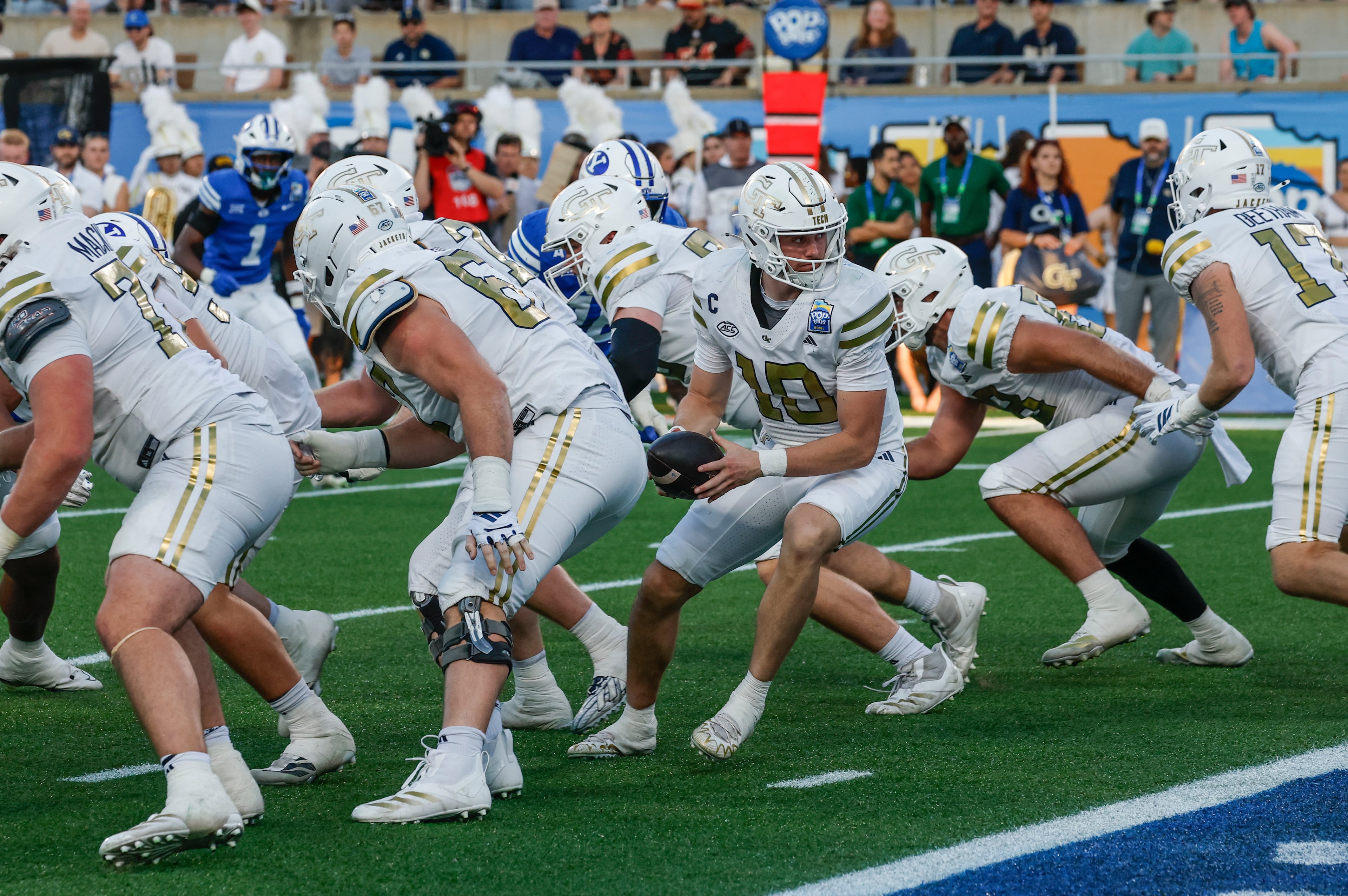As Georgia Tech opens preseason, ‘not a typical camp'

When Georgia Tech took the field for its first preseason practice Wednesday morning, it wouldn’t have taken an observer long to notice a significant difference in deference to the COVID-19 pandemic.
The Yellow Jackets who assembled were about half the number of the normal collection. Among the many changes instituted by coach Geoff Collins was his decision to practice in two shifts in an attempt to mitigate the effects of a potential infection of a team member.
It was a continuation of a protocol instituted for the team’s walk-through workouts of recent weeks in advance of preseason camp.
“This is not business as usual,” Collins said following the first day’s practice on a videoconference call with media. “This is not a typical camp.”
At the outset of his second season, Collins said he divided the practice sessions into younger and older groups. The younger group practiced at 7:30 a.m. Wednesday, followed by the older group at 9:30. They’re also using different locker rooms in another attempt to reduce the possibility for the spread of the coronavirus.
“So it’s a continuous flow for the coaches and for the staff and for the medical staff and for the trainers,” Collins said. “But for the guys, it’s get in and get out, and then they’ll have other things spaced out as well during the day.”
Among other changes from the norm – the practice fields were painted with dozens of what Collins called “safety loops” along the sidelines and on an area of the field where offensive coaches and players might stand behind the line of scrimmage during 11-on-11 and 7-on-7 drill work. They were marked there as visual reminders for coaches and players to avoid crowding together as they waited to take turn in drills.
“The first day we had an ‘OTA’ (organized team activity) or walk-through, the guys would just naturally bunch up, and I’m just looking at ‘em like, ‘Well, we can’t do that,’” Collins said.
Collins used an electronic whistle, as the non-digital version is difficult to blow with a mask and also a potential hazard for spreading respiratory droplets.
“I never knew that sort of thing existed until about a week ago,” Collins said. “That’s been a positive thing.”
When players ran through individual drills or went through a team drill at a slower pace, they eschewed their helmets for masks. Collins said he’ll try to incorporate that strategy as much as he can going forward.
The quick, frenzied pace that Collins has used to run practices has slowed, enough so that he has instituted periods of practice that are focused on conditioning. He previously did not do so, as the pace of practice served as its own form of conditioning.
The practice schedule, and the amount of effort that Collins has designed to induce from each session, will change given that the start of the season is now a week later, Collins said. Tech players will enjoy more off days in the run-up to the start of the season (the week of Sept. 7) than standard, he said, “and all that’s based on data, all that’s based on science to make sure our guys continue their development, but continue their development in a healthy and safe way.”
Collins said that he had not had any conversations with players considering opting out of the season because of health concerns, adding that “we fully support” such a consideration.
Collins said that he and his staff have been intentional in communicating protocols and the rationale behind them to players and their parents.
“The guys appreciate it, the guys understand it and now they just come out here (Wednesday) and put the ball down and play,” Collins said.
Collins took encouragement from the number of changes that are being instituted within his team, as he takes pride in his staff’s creativity.
“The teams that can be innovative, the teams that can be creative, the teams that can think outside of the box are going to be the ones that are successful,” he said.
Collins also took time to address, for the first time, not being able to play rival Georgia in November because of the SEC’s decision not to play any non-conference opponents, and didn’t let it slip without a dig at the Bulldogs. Collins said he was disappointed for the team’s seniors who “have laid the foundation for this program and all the success that we’re going to have aren’t going to get to play our in-state rival that’s 72 miles outside of Atlanta,” making a point of not mentioning Georgia by name. At the same time, he highlighted its distance from the state’s political, business and cultural hub, as Tech’s Atlanta location has been an oft-repeated recruiting point for Collins and his staff.
“I have confidence in the way that we’re going to go about our business, get better every single day,” he said, “and when we do play them in the future, the team that they see is not going to be the team that they saw back in November after Thanksgiving (a 52-7 win for UGA).”



